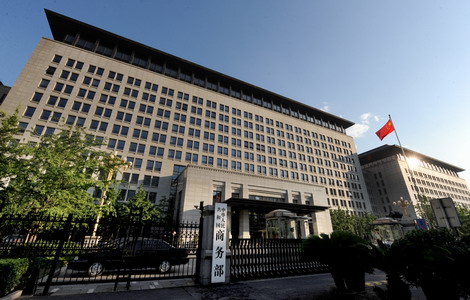 |
|
|
|
|||||||||||
|
 An official from the Ministry of Commerce said there is little chance that China will join the World Trade Organization's government procurement agreement this year. [Photo / China Daily] |
China will probably not take part in an international agreement on government procurement this year because of increased standards set by developed nations, said an official from the Ministry of Commerce.
Meanwhile, China needs to rectify some of its domestic regulations before it can join the agreement, which is meant to ensure that countries allow foreign businesses to compete for government purchase deals, said Suo Bicheng, director of the Department of World Trade Organization Affairs with the ministry.
Developed nations always raise the standards that participants in the WTO's government procurement agreement are to meet, he said.
"A lot of problems need to be resolved before China can join the pact," Suo added. "We see little chance of there being success in the short term, or even say this year."
His remarks came at a time when the European Union is expected to introduce a new version of its government procurement agreement on Wednesday. According to reports, the proposed version would bar companies in certain countries, including China, from taking part in the EU's pact while urging them to further allow European companies to compete for government business.
China joined the WTO in 2001, but the country didn't immediately take part in the organization's government procurement agreement. Its first attempt at doing so came in 2007 and was rejected by some of the agreement participants.
In July 2010, China submitted a new offer. Various developed countries and regions, led by the United States and the EU, praised the country's revamped proposal, yet said China could not join without making further concessions.
The US and the EU have called on China many times to allow more foreign companies to compete for its government business.
A spokesperson for the European Commission, the EU's executive body, has been quoted as saying the EU's new offer would let the commission take retaliatory action against countries that are found to have discriminated against European companies that are bidding for government contracts. If they are found to be in violation, they could be prevented from doing business in various European markets.
"The EU's new pact, when adopted, won't have an immediate effect on Chinese companies bidding for EU contracts and won't scare China into making concessions over the government procurement agreement proposal, as they expect," Suo said.
EU statistics show that non-European companies can bid on only 352 billion euros ($464.2 billion) worth of the region's government-procurement contracts.
"It's not a big number" compared with what China could provide, Suo said.
What's more, "Chinese companies always find it hard to bid for the deals, since the standards are much too high," Suo said.
The European Chamber of Commerce in China estimates the Chinese?public procurement budget calls for spending about $1 trillion.
Last December, the WTO finished making a landmark reform to its global government procurement agreement. The new version is expected to pertain to $100 billion worth of procurement contracts from the organization's 42 member countries.
Many believe it will pave the way for China and other countries to take part in the agreement.
But Suo is not optimistic.
"We have already made more concessions in our newest offer to join the government procurement agreement, but still can't meet the demands of some developed nations," said Suo.
He said China needs to "rectify laws and regulations that are related to the new pact to meet the international standard, which will take up a lot of time."
In November, China made its most recent attempt to enter the agreement and stopped short again of meeting the current participants' expectations.
They complained that China agreed to let the agreement apply to far less of its government spending than expected, only to the spending in five of its 31 provinces and regions and not to that of State-owned enterprises.
The US has urged China to speed up its adoption of the agreement and has said that the country has not promised to do enough to make that happen.
Minister of Commerce Chen Deming said China was willing to join the agreement and was trying to concede more.
dingqingfen@chinadaily.com.cn